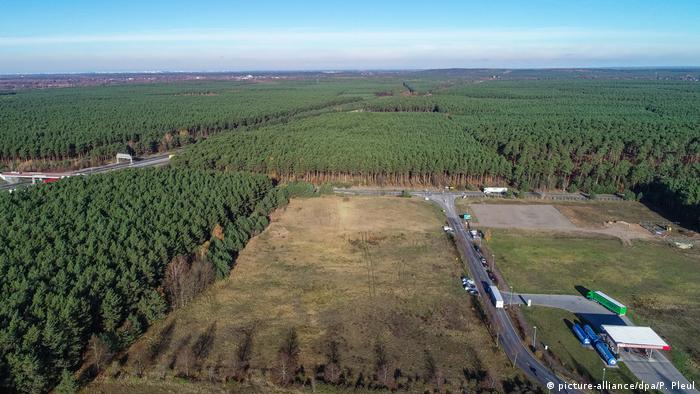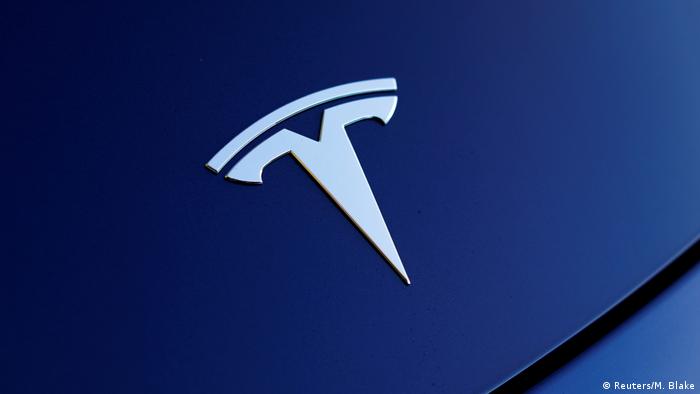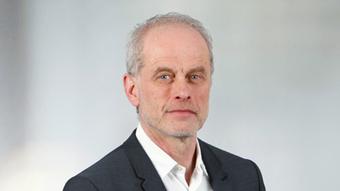A German court has halted the clearing of thousands of trees to make room for Elon Musk's electric car factory south-east of Berlin. Green groups forced the stop, just days after the felling began.

A German court has ordered the temporary halt of the development of a Tesla development site in a forest outside of Berlin.
The Higher Administrative Court of Berlin-Brandenburg (OVG) ruled late on Saturday that it must first consider an appeal from the Green League Brandenburg, an environmental protection association, against the tree felling.
Environmental organizations became outraged once the cutting of trees over 91 hectares of forest commenced Thursday.
The Green League called for an immediate stop to the felling and had filed an emergency appeal on Friday to put a stop on the construction of Elon Musk's "Gigafactory."
"We are calmly awaiting the decision of the OVG," government spokesman Florian Engels said on Sunday. "This will be taken for granted," he added.
"We then focus on the timely decision of the OVG," minister of economics in the German state of Brandenburg Jörg Steinbach wrote on Twitter.
Court to consider appeal
The court said that the "already advanced" work at the forest would have been "completed within three days" and so decided on imposing a temporary halt. The court added it would not assume that the Green League's appeal "was obviously hopeless from the outset."
The US electric car giant wants to start production in Grünheide in Brandenburg as early as the middle of next year.
On Thursday, Germany's environment ministry had given Tesla permission to begin work "at its own risk."
The car manufacturing company initially wants to produce 150,000 electric vehicles per year in Grünheide. Later, annual production could rise to 500,000 vehicles. Up to 12,000 workers will be hired at the factory.
The final construction permit has not yet been issued. According to the environment ministry, complaints against the factory can still be filed up until March 5. After that, the final permit will be reviewed.
Wildlife threats
The state of Brandenburg sold Tesla the 300-hectare site in Grünheide for almost €41 million ($44 million).
In the next month, the area will be searched for any waste deposits or explosive artillery from the Second World War.
The German government also recently announced that protected animals in the forest will be "recovered and moved to suitable locations" by April.
Opinion: Tesla's Germany plans are no coincidence
In typical Elon Musk style, he almost casually announced plans to build the European Tesla factory on the outskirts of Berlin. For German carmakers the plans have come just at the right time, says DW's Henrik Böhme.

Let's pretend for a moment that Berlin's huge new airport has been operational for some time. Then, the new Tesla factory could have even been built on the site of the old Tegel airport — and thus in Berlin itself.
But it seems that the rumors about the Berlin-Brandenburg airport disaster — with its opening delayed until at least next year — has spread to Tesla's board room because the hectic and not uncontroversial Elon Musk could not resist cracking a joke at its expense. Tesla certainly aims to get its new factory finished much faster than the troubled airport's planners (construction began in 2006).
The new Tesla facilities — called a Gigafactory because Elon Musk always likes to go one bigger — will now be built in a little-known place called Grünheide, to the southeast of Berlin, close to what may be, eventually, the new airport. Above all, it is being built in the state of Brandenburg, which means the neighboring state and city of Berlin will miss out on any trade taxes generated from the project.
Speed is of the essence
The interstate rivalry probably doesn't much interest Musk, unless he simply doesn't trust the Berliners to be quick enough. Despite its tiny size, Berlin still has plenty of space to settle, especially in the eastern part. But Musk is in a hurry, and the new factory must be built fast.
Why? Because Germany's car manufacturers have (finally!) recognized the sign of the times and are stepping up their investment in electric-powered cars. And I'm sure Musk must have noticed that Volkswagen, a little over a week ago, gave the go-ahead for its own electric car factory in Zwickauin the Eastern state of Saxony. Once the plant is retrofitted from combustion-engine to electric car production in 2021, the world's largest auto manufacturer wants 330,000 purely electric-powered vehicles to run off its production lines every year.

DW business editor Henrik Böhme
But that's not all: two other VW facilities in Germany are just starting to be retrofitted, and VW is now also adding electric car factories in China and the United States.
If Tesla was initially a laughing stock, it will soon be a serious competitor to Germany's automakers. The ambitious startup has had problems with mass production and is carrying around a gigantic mountain of debt. So if VW, the world's largest volume manufacturer — besides Toyota — enters the fray in such an ambitious way, albeit belatedly, then this is a serious threat for Tesla. Therefore, Musk's decision to build a plant in Germany must be seen as a declaration of war.
Read more: Brandenburg in Eastern Germany happy to get a Tesla Gigafactory
New jobs at the right time
Even the so-called luxury car segment, in which Tesla predominantly plays, its biggest competition comes from Germany — Porsche with its Taycan, Audi with the E-Tron series and Daimler's Mercedes EQC. Even in China, where Tesla has built up its third Gigafactory in just 10 months and test production has just started, dozens of direct competitors such as Byton, Wey and Hongqi are lined up in the starting blocks. Tesla's decision to produce cars in Germany means the race for electric car supremacy is now underway in the same country where the car engine was first invented.
Despite many unanswered questions, the new factory is great news for people in the region. Several thousand new jobs will be created, and they couldn't come at a better time. Just south of the planned factory — in Lusatia — thousands of jobs are set to be lost as a result of the decision to phase out lignite (brown coal) extraction.
Bets are now being taken on which project will be finished sooner — the new Berlin airport or Tesla's German Gigafactory.
No comments:
Post a Comment